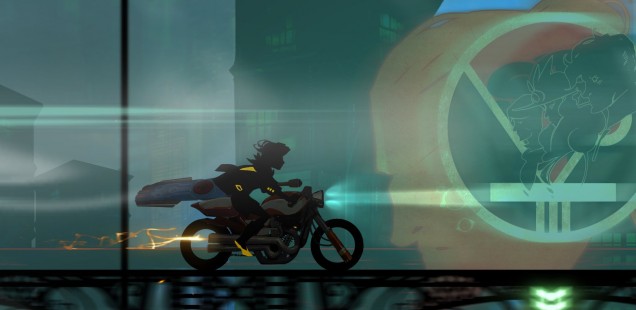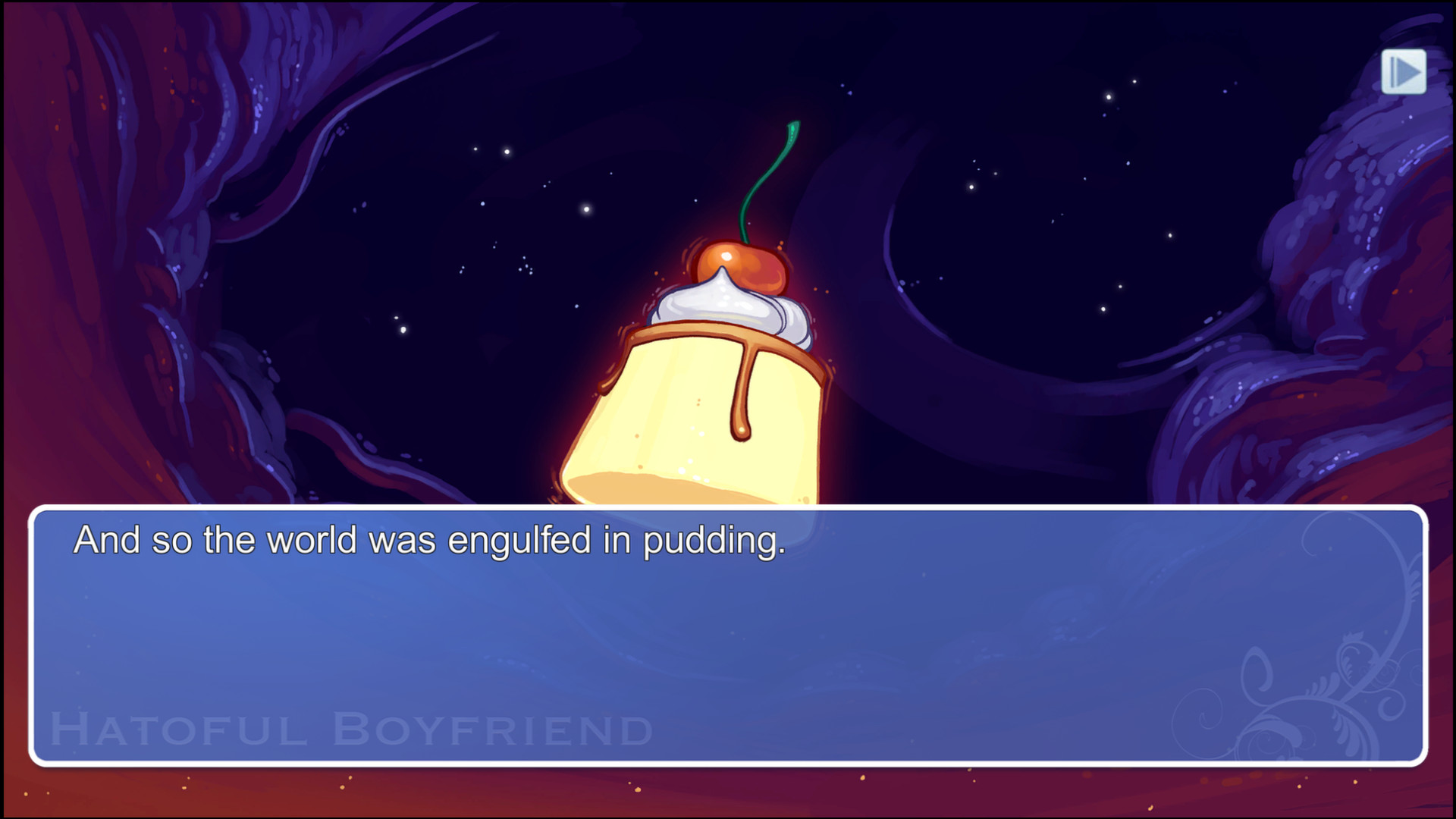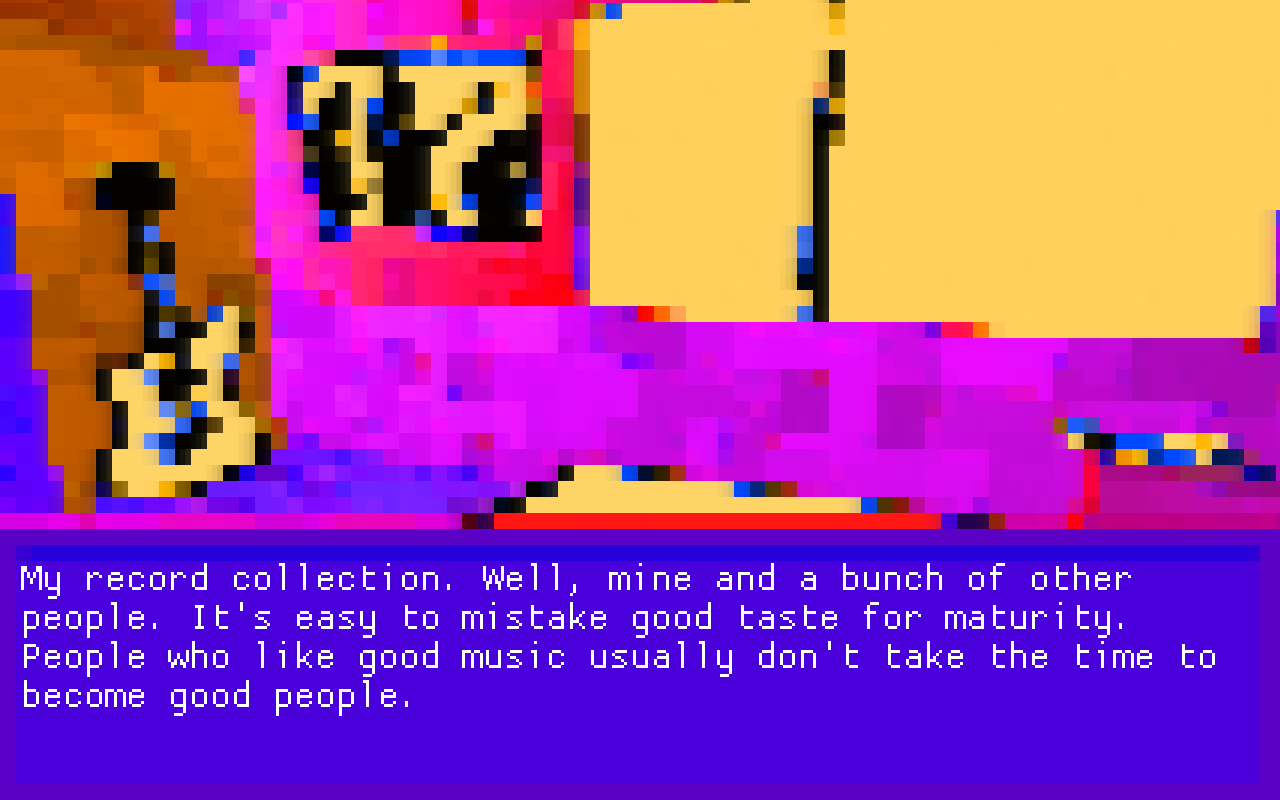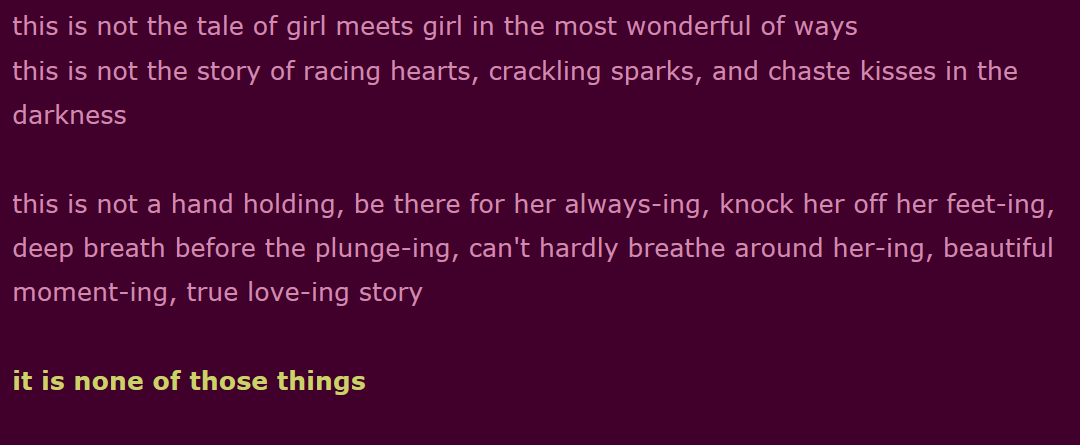
Games of 2014 (5/15)
Transistor, Curtain, Venus Meets Venus, Hurt Me Plenty, and Hatoful Boyfriend end week one of our retrospective.
Transistor
Recognizable, yet innovative, Transistor occupies a fascinating middle ground between triple A releases and smaller indie experiences. On the one hand, the gameplay isn’t likely to scare away a more traditional audience, and the overall experience is very polished, with some stellar voiceover work and a soundtrack that’s one of my favourite albums of the year. While its limited budget may not have allowed for animated cutscenes, the gorgeous artwork meant I didn’t miss them at all.
On the other hand, it still evokes the joys that make indie gaming special. Transistor feels personal. It feels human. In particular, it’s playful in ways that mainstream gaming has largely forgotten. The plot touches on important and complex philosophical, political and social themes, but you can stop and hum along with the soundtrack whenever you want. You can perform this childlike hop, an action the game calls flourish, just because you feel like it. You can relax on a hammock and marvel as the virtual sky seamlessly shifts from one impossible colour to another.
It’s small things like these that go beyond a purely utilitarian approach to game design and make Transistor stand out for me. It doesn’t only aim for a slick, balanced or entertaining experience; it cares that the human being playing the game feels good, too. That same philosophy comes through in every detail, not least its difficulty system, inherited from Supergiant’s previous game Bastion.
The vague storytelling hints at a larger, intricate world, which the community is still trying to analyze and understand. But if I cared at all, it’s because, at its heart, Transistor is simply a love story. Quietly, it also gets a lot of things right in terms of representation, with a very diverse cast that includes a bisexual protagonist, several homosexual main characters, and a “Gender: X” secondary character.
All things considered, I like to think that, had there been more games like it over the last few years, fewer people – myself included – would have felt the need to gradually move away from mainstream gaming.
Melody is passionate about games, words and music, and she expresses her love by meowing. You can find her on her blog, and on Twitter.
Curtain
In Curtain, the player takes the role of Ally, a young songwriter caught in an increasingly abusive relationship with Kaci, a temperamental and insecure guitarist. It’s a small game that masterfully uses space and sounds. The writing suggests that Kaci is constantly shadowing the player, but she is never present; only the haunting music coming from just out of sight accompanies the player, scanning one belonging after another while Kaci judges from offscreen. The game explores the loss of self to abuse.
The player and their avatar, Ally, know what Kaci is doing to them, but there isn’t anywhere else for them to go. Though Kaci is incrementally more controlling the more time Ally spends with her, she always remains sympathetic. Perhaps it’s a mark of the writer’s ability that it’s never clear whether Kaci really is manipulative or whether she has her own problems she needs to sort out. One way another, somehow a year goes by and the player scours the two moods of the apartment for a way out, hoping for an escape.
Curtain is about youth, insecurity and mental health. Curtain is about a single person trapped inside a small, ever more hostile house. It’s fascinating and uncomfortable, mature and psychological, and it doesn’t promise any answers. It’s likely the most expressive and emotionally honest game I played in 2014. The writing is succinct and natural, but so much more of the work is shouldered by the other aspects of design. The bold contrasting colors create an astoundingly expressive aesthetic in a layout that alienates an otherwise comfortable, even familiar setting. The music is soft and comforting until it’s sallow and alienating. It’s incredible how much meaning can be packed into an empty room.
Mark Filipowich is the co-coordinator of the Blogs of the Round Table feature at Critical Distance and the curator for Good Games Writing. His worked has appeared in PopMatters, The Border House, The Ontological Geek and many other fine virtual games locales. He has a sweet blog called bigtallwords and he tweets irregularly and irreverently at @MarkFilipowich.
Venus Meets Venus
It is not a love story.
This jangling, emotional Twine game might not be as sprawling as some of its peers, but it will still cut you to the core emotionally as you travel through the mistakes made by the protagonist, Lynn, a cis lesbian with a sex and drinking habit as she begins a relationship with Macy, a trans woman.
The game unfurls the story slowly as you travel along numbered chapters, links taking you to inner monologues, poetic verses that tease meaning and personality from the characters involved. It’s not a Twine that uses Sliding Doors-style choices to send you veering off to different paths, but rather one letting the story be gently traversed as you, the player, race to figure out how this one particular relationship ends, or rather, ended.
The crux of the game is seeing Lynn navigate through her flaws, as well as her mistakes and inability to treat Macy with the dignity and understanding she deserves. It is a complex, flawed thing and muddles brutal honesty and the kinds of self-deception we often get caught up in when we love someone, but don’t know how to love them right.
Nico is writer and critical darling who likes picking apart games with aplomb. When she’s not playing with her cat, she often writes about the intersection of games and feminism at Apple Cider Mage.
Hurt Me Plenty
Hurt Me Plenty is a game from which, at first glance, I expected novelty, but little depth. It was created as an entry in the Leap Motion Jam, and combines the device’s ability to read gestures with some jiggle physics to allow you to spank a virtual butt with the flick of your wrist. Or, more realistically, with the flick of your mouse. The game does not disappoint in delivering a simulated ass waiting to be punished, but the wonderful thing about it is that it happens to be attached to a simulated person.
To my surprise, Hurt Me Plenty does not focus solely on the act of slapping a rear, but portrays BDSM play holistically, realistically, including all the steps required to make it safe and enjoyable. It does not present the pain in isolation, but shows the negotiation of limits that precedes it, the unpacking and rebuilding that follows it, and even makes you bear the consequences for violating boundaries. If you break your submissive’s trust, he will not feel like playing with you for a couple of days.
Naturally, a game of this limited scope still has a few odd quirks, like the submissive’s at times contradictory closing remarks, which once chastised me for being too gentle before going on to say that he could now barely walk. However, its attention to detail makes Hurt Me Plenty a surprisingly memorable kink vignette. Its greatness lies in the way both sides enthusiastically agree to this spanking session – “Get on your goddamn knees” and “Hurt me plenty!” respectively.” It’s in the poster saying “All power exchange has to be negotiated.”
Indeed.
Joe Köller is the current Editor-in-Chief of Haywire Magazine, German correspondent for Critical Distance, and irregular contributor to German sites such as Video Game Tourism, Superlevel, and WASD. You can follow him on Twitter, and support him on Patreon.
 Hatoful Boyfriend
Hatoful Boyfriend
In general, this game about dating pigeons was widely recognized as my game of the year that I wouldn’t shut up about on Twitter. Among a sea of franchise releases, clones, and other titles that produced little more than a whimper in terms of impact, Hatoful Boyfriend managed to not only have an original premise, but to drag you along for hours as it explored every possible angle of it. It’s a dating sim where you, a human schoolgirl attending a prestigious academy for highly-intelligent birds, have the opportunity to seek out relationships with several students, a couple of teachers, and one random biker chick, pun intended.
For a game that comes down to beastiality, it raises some important and actually heart-wrenching topics such as bird life spans, a classist hierarchy that prevents certain birds from reaching their full potential, and the science behind this sudden epidemic of intelligent avian life and what it means. The true accomplishments of Hatoful Boyfriend lie in how much the developer thought out this world and its hypotheticals. As you play through each of the endings, you find out more of what the creator was trying to convey and what it means to create these relationships.
It’s not just about finding true love. It’s about the fate of the world, about understanding betweens groups of beings, and that it doesn’t matter what walk of life you come from. Also, there’s something called the Ultimate Pudding, so that’s a thing.
Carli Velocci is a freelance journalist from Boston. You can see her work in Killscreen, Paste Magazine, and anywhere else brave enough to publish her. You can follow her on Twitter or at her website.


